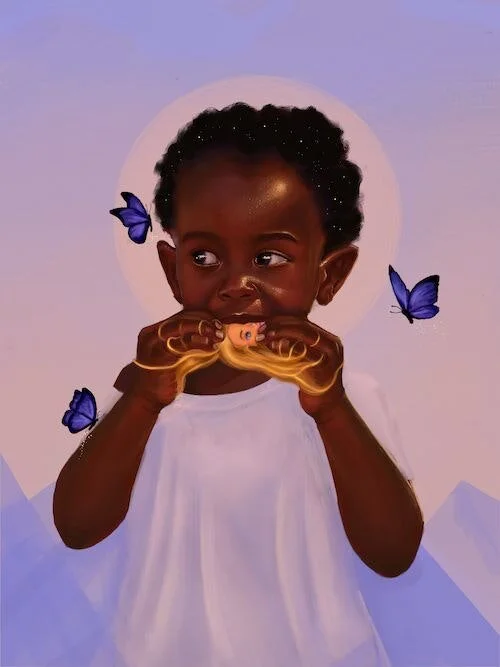
APRIL 3RD, 2021
“I was born free.” - Lethabo Huma
This is hard to write because I know no words I can write or speak will be as powerful as hers.
When I spoke to Lethabo Huma I told her my only experience with South Africa, where she lives, is from Trevor Noah, and the stories he’s told of growing up with a black mother whom he and his siblings had to tell police was a maid due to apartheid laws. So I asked her if she had similar experiences to this.
Her response was, “Well, I was born free.”
It is 2021; not 1921; not 1850. We live in an age of technology and education, where I can speak with a woman in South Africa with no barriers of distance or language. And, despite this progress, when I asked her what her experience has been, she felt compelled to make the distinction that she was born free.
Let that sink in. You are living in a time where the idea of living free for a black person is still a topic of conversation. This is not history; this is now.
I am usually long-winded. I like to ensure that others grasp the entire picture of a story. I like foreshadowing, well-rounded characters, and descriptive language.
Telling Lethabo’s story will not require that.
Her art is simple, her statements straight-forward; but each sentence carries depth and each creation accessible, despite the complex issues, leaving no room for second-guessing or avoidance of the issue.
This is not hyperbolic: one day I will tell people, Lethabo Huma is the most famous person I ever spoke to.

I live in the United States where our biggest export is our whiteness.
We have institutionalized the superiority of whiteness for so long that when a black man is shot by bigots in the street while jogging, some still run to the defense of the shooters.
For too long, previous generations have ignored the inequities that the black community faces. We can no longer tolerate this ignorance.
To be black has meant to be less, to be unequal, separate, or here in Eat Western, ugly.
And we’re spreading this disgusting view to other countries.
This idea of whiteness is so inherent to our culture that a white Barbie to a black child simultaneously represents everything they hate about themselves and everything they wish they were. So much so that when a child Lethabo knows received a black Barbie, they cried because it was not white.
This message internalized figuratively and the epithet ingested literally by beautiful black child.
A Moment Made For Her
Lethabo speaks to the racism and disgust for blackness bubbling under the surface in her own country; but, we can import this universal message to U.S. as a mirror to show others what we are doing to black children here and abroad.
Moments are never chosen by us. A series of events create chaotic circumstances where we search crowded masses for people with experience, with a voice, with wisdom; and in that crowd you can find Lethabo, shouting a message through her art, a difficult message to hear for some still.
Lethabo Huma's art will transcend this moment and outlive us all, to a time where, hopefully, people cannot comprehend the disparities and racism she perseveres through.
Look for the Behind the Pixel Episode with Lethabo Huma on the Cryptowriter Podcast.
